Manned & Unmanned Aircraft Observing Strategies for
Model Physics Evaluation (2014-2015)
Mission Description
The ideal experiment consists of coordinated three-plane missions designed to observe several mechanisms responsible for modulating convective activity, hurricane structure and storm intensity change including:
- Air-sea energy exchange and boundary layer processes
- Convection (storm and surroundings)
- Dynamic/thermodynamic processes (storm and surroundings)
- Cloud microphysics
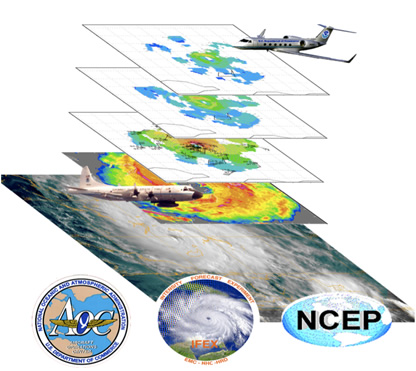
|
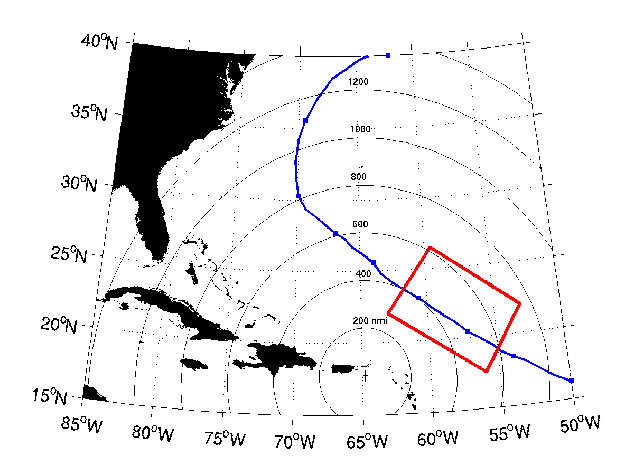
Figure 1. Storm track (blue), and observation region (red box), optimally suited for multi-aircraft experiment. Range rings are 200 nmi relative to forward operating base at STX (TISX). Track marks are spaced every 24 hrs.
|
Plan: Establish a multi-aircraft experimental design in geographical areas with limited operational requirements over a 24h refresh cycle
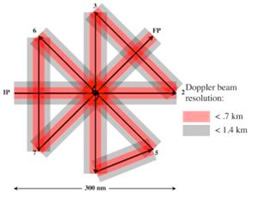
|
One NOAA P3 -> Captures the core, storm scale circulation (e.g. Current TDR mission profiles)
|
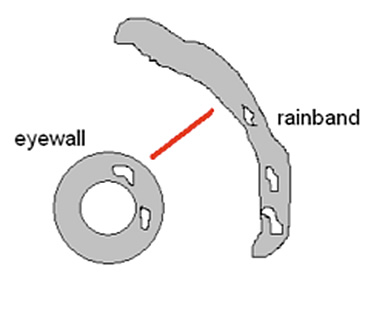
|
2nd NOAA P3 -> Responsible for sampling predetermined areas of interest outside the immediate TC high wind inner core (e.g. Entrainment flux module)<>
/h3
|
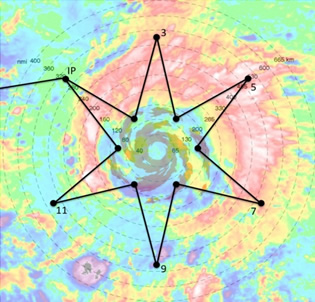
|
NOAA GIV -> Primarily responsible for capturing the tropical cyclone's surrounding larger scale environment
|
Model Physics Evaluation Experiment
The processes that will be targeted include air sea exchange, vertical/horizontal transport resulting from convective activity (including boundary layer entrainment and cloud microphysical processes), interactions with the surrounding environment, and ocean response. There are 3 high-priority foci that will targeted:
- Air-Sea Exchange:
- TC Inner Core Processes (R<~150 km):
- TC Environment Processes (R>~150 km):
Several research experiments/modules support the air-sea exchange, TC Inner Core Processes, and TC Environment Processes foci of this overarching experiment. These experiments/modules include:
- TC-Ocean Response Experiment (Uhlhorn, Lumpkin, Centurioni, Shay)
- Hurricane Boundary Layer Entrainment Flux Module (J. Zhang, G. Barnes)
- Hurricane Boundary Layer Inflow Experiment (J. Zhang, E. Uhlhorn, J. Cione)
- Coyote UAS (Cione)
- RAPX (Kaplan, Rogers, Dunion)
- Microphysics - Aerosol/Cloud droplet measurement option (B. Black)
- SALEX-Arc Cloud Module (Dunion)
- Doppler Wind Lidar (DWL) Boundary-layer Module (J. Zhang)
- Doppler Wind Lidar (DWL) SAL Module (Dunion)
- TC Diurnal Cycle Experiment (Dunion)
- TC in Shear Experiment (Reasor)
- Convective Burst Module (Rogers)
Regional and Global Model Evaluation and Improvement Project  
|